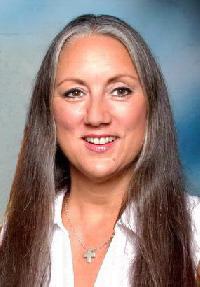
What is Adult Children of Alcoholic’s Syndrome?
By Angie Carter
Syndrome, as defined by the dictionary, is a group of signs and symptoms that are characteristic of a specific disease or other disorder. It can also mean events that form a recognizable pattern, especially of something undesirable. If a person is raised in a home where alcoholism is prevalent, certain patterns of thinking, feeling, and behaving can emerge from that upbringing.
I am an Adult of Child of an Alcoholic. For short, we use the term Adult Child or ACoA. The term “Adult Child” best reflects the responses we frequently engage in – namely fear and self-doubt – when dealing with adult interactions. We question our self worth and many times feel disconnected from life.
There is a list of characteristics from the Adult Children- Alcoholic/Dysfunctional Families book (ACA) book that help many individuals evaluate their situation and determine if they have this particular syndrome. It is called the “laundry list”. Here is a condensed version of that list:
- We became isolated and afraid of people and authority figures.
- We became approval-seekers and lost our identity in the process.
- We are frightened by angry people and any personal criticism.
- We either become alcoholics, marry them, or both.
- We live life from the viewpoint of victims.
- We have an overdeveloped sense of responsibility and it is easier to be more concerned with others; this enables us not to look too closely at our own faults.
- We experience guilt feelings when we stand up for ourselves instead of giving in.
- We became addicted to excitement.
- We confuse love and pity and tend to love people we can rescue.
- We have stuffed our feelings from our traumatic childhoods and lost the ability to express them.
- We judge ourselves harshly and have a very low sense of self-esteem.
- We are dependent personalities who are terrified of abandonment.
- We took on characteristics of alcoholism even though we may not drink.
- Codependents are reactors rather than responders.
Most of these characteristics have an opposite that can also affect an Adult Child. For example, we may fear authority figures but then became an authority figure, possibly to our children, spouses, or others. Most of my characteristics of being an Adult Child fell into this category. These behaviors form the “other laundry list”, which includes:
1. Becoming a dominant authority figure
2. Victimizing others and projecting blame
3. Fits of rage and cursing
4. Engaged in fighting that goes beyond mere words
5. Stolen merchandise, written bad checks, and embezzled money
It is very difficult for Adult Children to give or receive love because we have not experienced healthy role-modeling in this area. What we think is love or intimacy, in reality, is codependency or intensity. Many Adult Children drown out childhood-of-origin feelings through a variety of addictive and compulsive behaviors. Because of the alcoholism and dysfunction in my family, I also turned to alcohol and other unhealthy coping mechanisms. I was sober many years before I was able to see and deal with these particular issues. I eventually knew that if I didn’t address and work on these concerns that I would not be able to sustain a healthy marital relationship.
Taking an inward journey of this type is never easy. It can be very painful going through the process of uncovering, discovering, and discarding. Personally, I used a combination of therapy and a 12-step process in order to do this. I have made great strides in healing the trauma and dysfunction from my past, but for me it is an ongoing process. The progress of healing is evidenced in my present-day relationships and marriage.
Some of the obstacles in doing this type of work can be feelings of guilt associated with “betraying” our parents as we explore how the dysfunction of our upbringing has impacted us. One of the first things we learn as we begin our journey is to understand the difference between blaming our parents and getting honest about the reality of our childhood experiences. Simply put, my mother (father was absent) did the best she could, and she loved all of her children. That does not mean there was not dysfunction. There was. In recovery I learned how to continue to love my mother, get honest about what happened, and take the necessary steps to heal from it. I eventually experienced forgiveness toward my father for his abandonment of our family.
I encourage anyone who thinks they may be affected by Adult Child Syndrome to research it further and experience the freedom that healing can bring.
There is a profound quote that has stuck with me for many years: “Pain is inevitable – suffering is optional.” There is hope and there is help.


